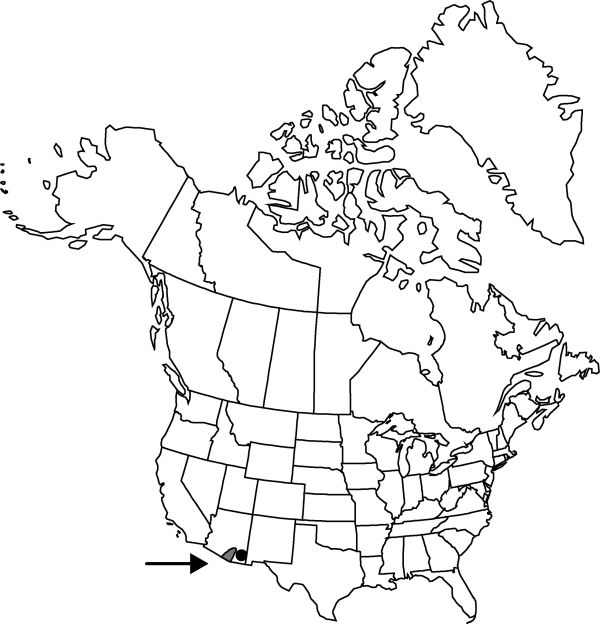Boerhavia pterocarpa
Proc. Amer. Acad. Arts 17: 376. 1882.
Herbs, annual; taproot tapered, soft or ± woody. Stems procumbent or decumbent to ascending, sparingly branched throughout, 1–4 dm, minutely puberulent with bent hairs throughout. Leaves ± throughout; larger leaves with petiole 3–12 mm, blade rhombic-ovate to ovate or lanceolate, 15–25 × 9–15 mm (distal leaves smaller, proportionately narrower), adaxial surface glabrous or sparsely puberulent, abaxial surface paler than adaxial, glabrous, neither surface punctate, base round to obtuse, margins entire or slightly sinuate, apex acute. Inflorescences terminal or axillary, without sticky internodal bands; peduncle, 1–3 cm, bearing small capitate clusters of flowers. Flowers: pedicel 0.3–0.6 mm; bracts at base of perianth quickly deciduous, lance-acuminate, 0.4–0.7 mm; perianth white to pale pinkish, campanulate distal to constriction, 1–1.5 mm; stamens 2, included or barely exserted. Fruits 2–8 per cluster, pale green to straw colored, broadly obpyramidal, base tapered to stipelike above pedicel, 2.9–3.4 × 2.8–3.2 mm (l/w: 1–1.4), apex truncate, glabrous; ribs 3–4, winglike, smooth; sulci 3–4 times as wide as base of ribs, coarsely transversely rugose, not papillate.
Phenology: Flowering late summer.
Habitat: Sandy loam to clay soils, disturbed areas, occasionally a weed in ornamental beds
Elevation: 700-1200 m
Distribution

Ariz., Mexico (Sonora).
Discussion
Selected References
None.